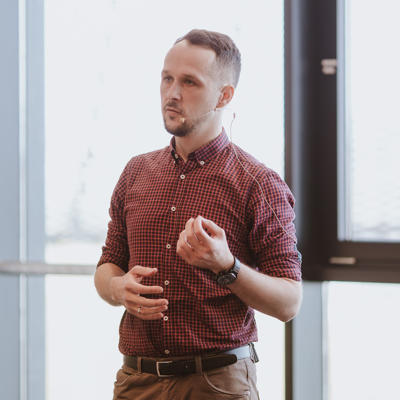Session
Event Sourcing in production
Event Sourcing is a pattern that is quickly gaining popularity. Many companies see the advantages it brings, e.g. business focus and keeping all information about the business process. It can also be a great input to analytics, providing increased diagnostics and tracing. Nowadays, that's essential for running a system on the scale.
There are already decent materials teaching how to start the journey with Event Sourcing, yet it's not easy to get certainty that what we designed will work on production. Even when we get there, it's worth revisiting lessons learned and discovering what we can improve in preparing for the upcoming challenges.
The goal of this workshop is to strengthen all of the critical aspects of running event-sourced on production:
- modelling (like keeping streams short, managing consistency and efficiently handling business logic, best practices and anti-patterns),
- managing schema evolution, so events versioning,
- advanced projections design and resiliency, so how to get the best from events to efficiently get read models and insights from them,
- DevOps techniques (like traceability, blue-green projection rebuilt, archiving old data),
- handling distributed processes and integrating with other systems,
- putting event sourcing as a vital part of the whole architecture (so how to integrate it with non-event-sourced modules, defining private and public schema).
After the workshop, you'll understand and practice techniques that will allow you to run your Event-Sourcing system on production.
All the exercises will be backed by the versatile knowledge of the trainer, Oskar Dudycz. He'll share his experience building systems like Marten and EventStoreDB and working as an architect and consultant in many Event Sourcing projects.
We'll start with the project of the system that looks fine as the first production deployment. Through group exercises, a mixture of modelling and practical coding exercises, we'll analyse potential issues step by step. We'll learn how to refactor it step by step without breaking it. That will allow us to fix the boundaries, consistency guarantees, and resiliency. We'll practice both adding new capabilities and changing existing ones. We'll practice schema evolution and DevOps practices like projection rebuilds. We'll end with a more robust and prepared-for-the-next-challenges system.
Please note that Sessionize is not responsible for the accuracy or validity of the data provided by speakers. If you suspect this profile to be fake or spam, please let us know.
Jump to top
